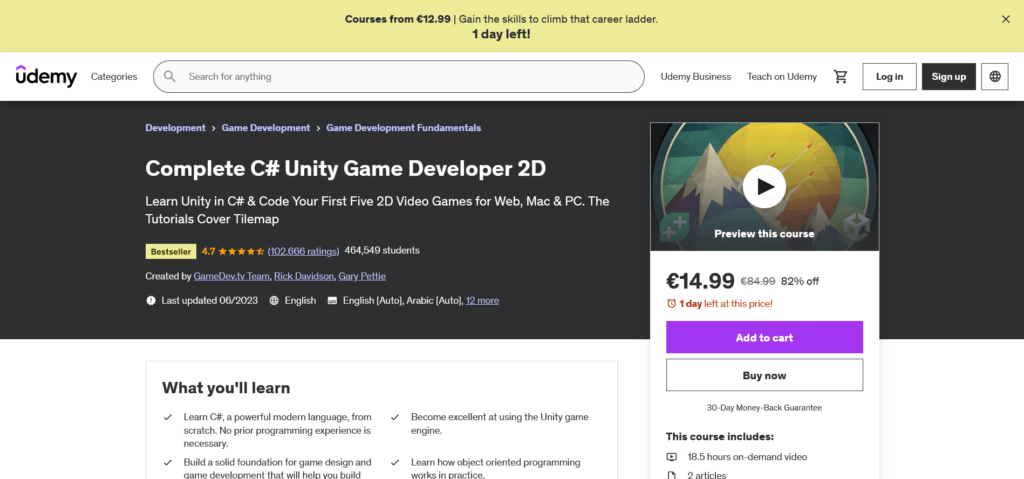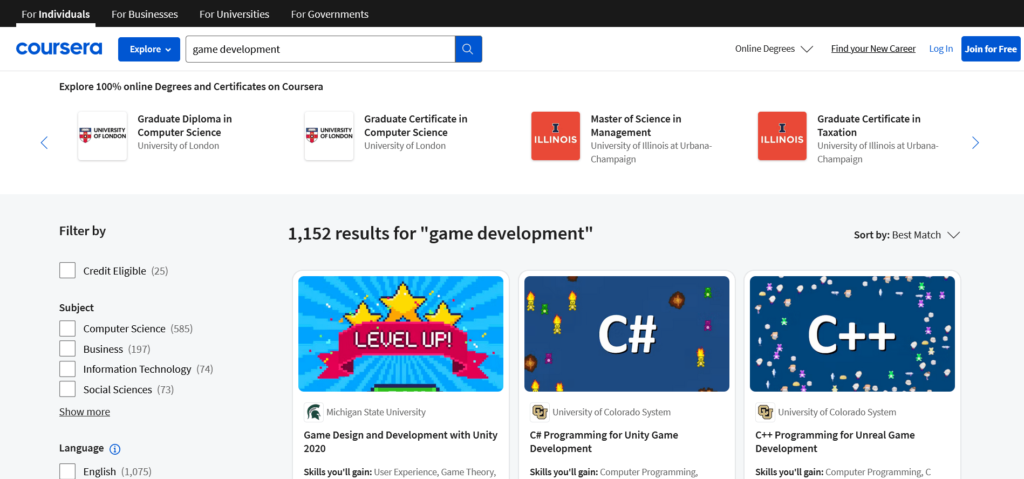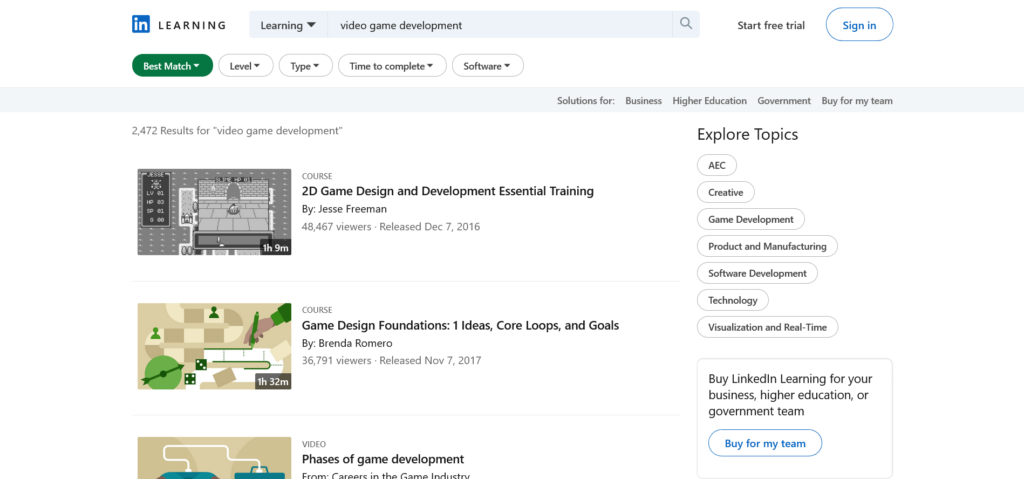Introduction
In today’s dynamic and rapidly evolving gaming industry, the role of a video game producer has become increasingly crucial. Video game producers are the driving force behind the creation, development, and successful launch of some of the most iconic and groundbreaking games in the market. If you’re passionate about gaming and have a knack for project management, creativity, and leadership, a career as a video game producer might be the perfect fit for you. In this comprehensive guide, we’ll delve into the intricacies of how to become a successful video game producer, from gaining the necessary skills and education to navigating the competitive landscape of the gaming industry.
Understand the Role of a Video Game Producer
Before diving into the specifics of becoming a video game producer, it’s essential to understand the responsibilities and duties associated with the role. A video game producer oversees the entire game development process, from conceptualization to release. They work closely with a diverse team of professionals, including designers, programmers, artists, and marketers, to ensure that the project stays on track and meets deadlines. Key responsibilities include project management, budgeting, resource allocation, risk assessment, and maintaining clear communication channels among team members.
Gain the Requisite Skills and Education
While there’s no strict educational path to becoming a video game producer, obtaining a relevant degree or certification can significantly boost your prospects in the competitive job market. Degrees in fields such as game design, computer science, project management, or business administration provide a solid foundation for aspiring video game producers. Additionally, acquiring specific skills such as project management, leadership, communication, problem-solving, and a deep understanding of game development processes is essential. Consider participating in workshops, online courses, or industry events to enhance your skills and stay updated with the latest trends in game production.
Build a Strong Portfolio
In the gaming industry, practical experience and a robust portfolio carry significant weight when seeking employment as a video game producer. Start by gaining hands-on experience through internships, freelance projects, or entry-level positions in game development studios. Use these opportunities to showcase your skills in project management, team collaboration, and problem-solving. Additionally, consider creating your own game projects or participating in game jams to demonstrate your creativity and passion for game production. A well-curated portfolio that highlights your achievements and contributions will set you apart from other candidates in the competitive job market.
Network and Establish Industry Connections
Networking plays a crucial role in advancing your career as a video game producer. Attend industry events, conferences, and networking mixers to meet professionals already working in the gaming industry. Join online forums, social media groups, and professional associations dedicated to game development to connect with like-minded individuals and potential mentors. Building strong relationships with industry professionals can provide valuable insights, job opportunities, and mentorship to accelerate your career growth as a video game producer.
Stay Updated with Industry Trends
The gaming industry is constantly evolving, with new technologies, platforms, and trends shaping the landscape. As a video game producer, it’s essential to stay updated with the latest industry trends, emerging technologies, and consumer preferences. Follow industry publications, blogs, podcasts, and social media channels to stay informed about market trends, successful game releases, and industry best practices. Additionally, engage with the gaming community, participate in beta testing, and gather feedback to understand player preferences and adapt your production strategies accordingly.
Develop Leadership and Communication Skills
Effective leadership and communication are indispensable qualities for a successful video game producer. As a leader, you’ll be responsible for guiding and motivating your team to achieve project goals and overcome challenges. Develop strong interpersonal skills to foster a collaborative and supportive work environment where team members feel empowered to share ideas and feedback. Additionally, hone your communication skills to convey project expectations, priorities, and updates clearly to stakeholders, team members, and external partners. Effective leadership and communication are essential for navigating the complexities of game development and ensuring the successful delivery of high-quality games.
Pursue Continuous Learning and Growth
The gaming industry is highly competitive and continuously evolving, requiring video game producers to adapt and grow alongside it. Pursue continuous learning opportunities, whether through additional certifications, online courses, or professional development programs. Stay curious and open-minded, seeking out new technologies, methodologies, and industry best practices to enhance your skills and stay ahead of the curve. Additionally, embrace feedback and learn from both successes and failures to refine your approach and become a more effective video game producer.

Top Online Education Platforms to Become a Video Game Producer
In today’s digital age, the dream of becoming a video game producer is more accessible than ever, thanks to the plethora of online education platforms offering comprehensive courses tailored to aspiring game producers. Whether you’re a novice looking to break into the gaming industry or a seasoned professional seeking to enhance your skills, these online platforms provide the perfect opportunity to learn the intricacies of game production from industry experts. In this article, we’ll explore some of the top online education platforms where you can learn how to become a video game producer and embark on a rewarding career in game development.
Udemy

Udemy offers a wide range of courses on game production, covering topics such as project management, game design principles, and team collaboration. Courses are taught by industry professionals with hands-on experience in game development, providing valuable insights and practical skills to aspiring video game producers.
Coursera

Coursera partners with leading universities and institutions to offer specialized courses and certifications in game production. From project management fundamentals to advanced game development techniques, Coursera’s courses provide a comprehensive learning experience for aspiring video game producers.
LinkedIn Learning

Formerly known as Lynda.com, LinkedIn Learning offers a vast library of video tutorials and courses on game production and project management. With courses covering topics such as Agile methodologies, leadership skills, and game design principles, LinkedIn Learning provides a flexible and accessible learning platform for aspiring video game producers.
Pluralsight
Pluralsight is a popular online learning platform known for its extensive library of technology and creative courses. For aspiring video game producers, Pluralsight offers courses on game development, project management, and software tools commonly used in the gaming industry. With expert-led courses and hands-on projects, Pluralsight equips learners with the skills needed to succeed in game production.
Skillshare

Skillshare is a creative learning platform that offers a variety of courses on game production, project management, and game design principles. With a focus on practical skills and hands-on projects, Skillshare provides an engaging learning experience for aspiring video game producers.
FutureLearn
FutureLearn partners with leading universities and institutions to offer online courses and degrees in various subjects, including game production. FutureLearn’s courses cover topics such as game design theory, project management methodologies, and industry insights, providing learners with a comprehensive understanding of game production.
Top 10 Questions and Answers About How to Become a Video Game Producer
- What does a video game producer do?
A video game producer is responsible for managing the development of a video game from concept to completion. Their duties include coordinating with different teams such as developers, designers, artists, and testers to ensure the project stays on schedule and within budget. Additionally, they oversee the creative vision of the game, handle project management tasks, and act as a liaison between the development team and other stakeholders.
- What qualifications do I need to become a video game producer?
While there’s no specific educational requirement to become a video game producer, most professionals in this field have a bachelor’s degree in a related field such as game design, computer science, or business administration. Additionally, gaining experience in the gaming industry through internships or entry-level positions can be beneficial. Strong communication, leadership, and organizational skills are also essential for success in this role.
- How do I gain experience in the gaming industry?
To gain experience in the gaming industry, consider pursuing internships or entry-level positions at game development studios, publishers, or related companies. Networking with professionals in the industry, attending gaming conferences and events, and participating in game development communities can also help you build valuable connections and knowledge.
- What software skills are required to become a video game producer?
Video game producers should have proficiency in project management software such as Jira, Trello, or Asana to effectively organize and track the progress of game development tasks. Additionally, familiarity with game development engines such as Unity or Unreal Engine and knowledge of programming languages like C++ or Python can be beneficial for understanding the technical aspects of game development.
- How do I develop leadership skills as a video game producer?
Developing leadership skills as a video game producer requires practice and dedication. Seek opportunities to lead team projects, communicate effectively with team members, and make decisions that align with the project’s goals. Additionally, consider taking leadership courses or workshops to enhance your skills in areas such as conflict resolution, decision-making, and team management.
- What are the typical career paths for video game producers?
Video game producers can follow various career paths within the gaming industry. Some may advance to senior producer or executive producer roles, overseeing multiple projects or entire development studios. Others may transition into roles in game design, project management, or business development within the gaming industry or related fields such as software development or entertainment.
- How do I stay updated on industry trends as a video game producer?
Staying updated on industry trends as a video game producer is essential for success in this dynamic field. Subscribe to gaming industry publications, follow influential figures and companies on social media, and participate in online forums and communities dedicated to game development. Additionally, attending gaming conferences, workshops, and networking events can provide valuable insights into emerging trends and technologies.
- What are the challenges of being a video game producer?
Being a video game producer comes with its unique set of challenges, including managing tight deadlines, navigating creative differences among team members, and adapting to changes in project scope or direction. Additionally, maintaining a work-life balance can be challenging due to the demanding nature of the industry and the need to stay updated on evolving technologies and trends.
- How do I showcase my skills as a video game producer?
To showcase your skills as a video game producer, consider creating a portfolio showcasing your contributions to game development projects, including your role in project management, problem-solving abilities, and leadership skills. Additionally, participate in industry events such as game jams or competitions to demonstrate your creativity and teamwork capabilities to potential employers.
- What advice do you have for aspiring video game producers?
My advice for aspiring video game producers is to stay passionate about gaming, continuously seek opportunities for learning and growth, and build a strong network of industry contacts. Be proactive in seeking out internships or entry-level positions to gain valuable experience, and don’t be afraid to take on challenges and learn from setbacks along the way. With dedication, perseverance, and a love for gaming, you can embark on a rewarding career as a video game producer.
Becoming a video game producer is a challenging yet rewarding journey that requires a combination of technical skills, creativity, and leadership abilities. By following the insights and advice provided in this guide, you can take the first steps towards realizing your dream of shaping the future of gaming as a video game producer. Remember to stay curious, adaptable, and passionate about the industry, and you’ll be well-equipped to succeed in this exciting field.
Top 10 Job Interview Questions and Answers for Aspiring Video Game Producers
1. Can you describe your experience with video game production projects?
Answer: Highlight your relevant experience, emphasizing specific projects you’ve contributed to. Discuss your role in project management, problem-solving, and collaboration within a game development team.
2. How do you handle tight deadlines and unexpected challenges in game production?
Answer: Showcase your ability to thrive under pressure by discussing your experience with tight deadlines and unexpected challenges. Emphasize your problem-solving skills, adaptability, and how you maintain a focus on project goals.
3. What project management methodologies are you familiar with, and which do you prefer?
Answer: Discuss your knowledge of Agile, Scrum, or other project management methodologies. Highlight any experience you have with these methodologies and explain how you adapt them to fit the unique needs of game production.
4. How do you ensure effective communication within a game development team?
Answer: Stress the importance of clear communication in game production. Discuss tools you use for collaboration, regular team check-ins, and the establishment of a transparent and open communication culture.
5. What strategies do you employ to motivate and lead a diverse team of game developers?
Answer: Showcase your leadership skills by discussing your ability to motivate and lead a diverse team. Highlight instances where you successfully fostered a positive team culture, encouraged creativity, and facilitated effective collaboration.
6. Can you provide an example of a successful game project you managed from concept to launch?
Answer: Share a detailed example of a game project you managed, highlighting key milestones, challenges, and the ultimate success of the game’s launch. Discuss the impact of your leadership on the project’s overall success.
7. How do you stay updated with industry trends and emerging technologies in game development?
Answer: Demonstrate your commitment to staying informed by discussing your regular engagement with industry publications, blogs, conferences, and networking events. Highlight any involvement in beta testing or personal projects that showcase your awareness of industry trends.
8. How do you handle disagreements or conflicts within a team?
Answer: Discuss your approach to conflict resolution, emphasizing your ability to address disagreements diplomatically. Highlight instances where you successfully mediated conflicts and restored a positive team dynamic.
9. What tools and software are you proficient in for game production?
Answer: List the relevant tools and software you are proficient in, such as project management tools, game development engines, and collaboration platforms. Emphasize your adaptability to learn new tools quickly.
10. What do you believe is the future of video game production, and how do you see yourself contributing to it?
Answer: Showcase your forward-thinking mindset by discussing your insights into the future of video game production. Emphasize your commitment to embracing new technologies, methodologies, and trends to contribute to the evolving landscape of the gaming industry.
Preparing for job interviews as an aspiring video game producer is crucial for success in a competitive industry. By familiarizing yourself with these common interview questions and crafting thoughtful, detailed responses, you’ll be well-equipped to showcase your skills, experience, and passion for game production during your next job interview. Remember to tailor your answers to your unique experiences and strengths, ensuring you leave a lasting impression on potential employers in the dynamic world of game development.
Two Example Resumes for a Video Game Producer With Different Levels of Experience
Example 1: Entry-Level Video Game Producer
[Your Name]
[Your Address]
[Your Phone Number]
[Your Email Address]
Professional Summary: Energetic and detail-oriented recent graduate with a Bachelor’s degree in Game Design and a passion for video game production. Proven ability to work collaboratively in fast-paced environments and a strong desire to contribute to innovative and successful game development projects. Seeking an entry-level position as a Video Game Producer to apply academic knowledge and gain hands-on experience in the industry.
Skills:
- Project Management
- Team Collaboration
- Game Design Principles
- Creative Problem-Solving
- Effective Communication
- Adaptability and Quick Learning
- Time Management
- Basic Knowledge of Agile Methodologies
- Enthusiastic and Proactive
Education: Bachelor of Arts in Game Design | Gaming University, Anytown, USA | [Month Year] – [Month Year]
- Relevant coursework includes Game Production, Project Management, and Game Design Principles.
Projects: Capstone Project: “Epic Quest”
- Led a team of four in the development of an immersive RPG game from concept to completion.
- Utilized Agile methodologies for project management, resulting in an efficient development process and timely delivery.
- Collaborated with artists and programmers to integrate innovative gameplay features and create a visually stunning game world.
Internship: Game Development Assistant | Game Dynamics Studio, Anytown, USA | [Month Year] – [Month Year]
- Assisted in project coordination, resource allocation, and progress tracking for an upcoming game title.
- Participated in team meetings, providing input on design decisions and contributing to problem-solving discussions.
- Gained hands-on experience with industry-standard tools and software.
Certifications:
- Project Management Essentials Certification
Portfolio: Include a link to your online portfolio showcasing academic projects, internships, and any other relevant work or contributions.
Example 2: Experienced Video Game Producer
[Your Name]
[Your Address]
[Your Phone Number]
[Your Email Address]
Professional Summary: Results-driven and highly skilled Video Game Producer with over 8 years of experience in successfully managing and delivering diverse game development projects. Proven track record of leading cross-functional teams to achieve project goals on time and within budget. Adept at implementing effective project management methodologies, fostering collaborative environments, and ensuring the successful launch of critically acclaimed games.
Skills:
- Project Management
- Agile Methodologies
- Team Leadership
- Budgeting and Resource Allocation
- Game Design Principles
- Risk Assessment and Mitigation
- Clear and Effective Communication
- Conflict Resolution
- Creative Problem-Solving
- Industry Trends and Emerging Technologies
Professional Experience:
Video Game Producer | XYZ Studios, Anytown, USA | [Month Year] – Present
- Led the end-to-end production of multiple successful game titles, resulting in a 20% increase in overall studio revenue.
- Implemented Agile methodologies, improving project efficiency and reducing development time by 15%.
- Collaborated with cross-functional teams, including designers, artists, programmers, and QA testers, to ensure seamless communication and coordination throughout the development process.
- Oversaw project budgets, resource allocation, and risk assessment, consistently delivering projects within budget and exceeding quality expectations.
Associate Producer | ABC Games, Anytown, USA | [Month Year] – [Month Year]
- Assisted in the production of high-profile game titles, contributing to the successful launch of three critically acclaimed games.
- Managed day-to-day tasks, including scheduling, progress tracking, and team coordination, ensuring project milestones were met on time.
- Conducted regular team meetings to foster open communication, address challenges, and provide motivation, resulting in a cohesive and productive development team.
Education: Bachelor of Science in Game Design | University of Gaming Excellence, Anytown, USA | [Month Year] – [Month Year]
Certifications:
- Project Management Professional (PMP)
- Scrum Master Certification
Portfolio: Include a link to your portfolio showcasing successful game projects, design documents, and any other relevant work.
Conclusion
Becoming a successful video game producer requires a combination of education, skills, experience, and a passion for gaming. By understanding the role of a video game producer, gaining the necessary skills and education, building a strong portfolio, networking with industry professionals, staying updated with industry trends, developing leadership and communication skills, and pursuing continuous learning and growth, you can embark on a rewarding career path in game production. With dedication, perseverance, and a commitment to excellence, you can make your mark in the dynamic and exciting world of video game development.














